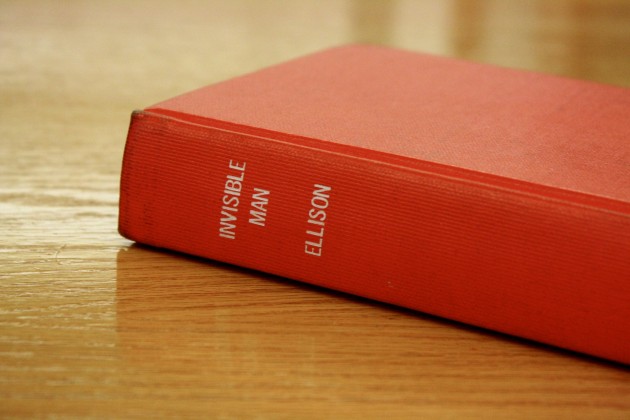
As one of three choices on the summer reading list for Randleman High School’s juniors, Ralph Ellison’s “The Invisible Man” has been anything but transparent.
On Sept. 16, in a fit of inexplicable irony the week before the American Library Association hosted its National Banned Books week Randolph County in North Carolina took Ellison’s “The Invisible Man” off the shelf and the summer reading list. This occurred in response to a parent’s complaint about the explicit sexual content of the novel.
To challenge the novel, parent Kimiyatta Parson had to fill out an extensive form that proved she had not just read the novel but understood the outstanding themes and purpose. On this form, she wrote that she objected to the detail in which the speaker “discusses sexual encounters, incest, rape, etc.”
“This is not appropriate reading material for even the youngest of your student population,” Parson wrote.
She was, if anything, thorough in her complaint by encompassing excerpts from the novel. This could explain why measures were taken to quickly assess the need for removal from the shelves of the school libraries. But, this challenge elicited a national outcry.
According to the School-Based Committee Report on Aug. 6, the committee was made up of Matt Kendall, assistant principal; Courtney Davis, lead teacher; Tammy Lambert, early exceptional children teacher; Anna Kelly, media specialist; Nathan Russell, English department chair, and Amanda Edwards-Whatley, English teacher. They discussed the parent’s appeal to have the novel removed from the summer reading list and the library. This group of individuals ruled that Ellison’s book should not be removed from the school’s library. Instead, a synopsis of all books would be provided for students and “. . .There will be a disclaimer about future books that will inform parents about any possibly objectionable material.”
In their report, the school-based committee made this decision based on the rationale that Ellison’s book is highly suggested reading material on several state mandated lists and is “cited on the [North Carolina Department of Public Instruction] Instructional Support Tools for Achieving New Standards as a novel that ‘suggests that freedom, justice and equality are not universal and access to these rights can be limited by prejudice.'”
The novel is also a suggested work for Grade 11 in the “Common Core Curriculum maps in English Language Arts: Grades 9-12,” a professional book for teachers to use in the Common Core.
In addition to being found on multiple lists, Ellison’s novel meets several of the Common Core Standards in place for eleventh grade. Students should be able to “analyze a case in which grasping a point of view requires distinguishing what is directly stated in a text from what is really meant; demonstrate knowledge of eighteenth-, nineteenth- and early-twentieth-century foundational works of American literature, including how two or more texts from the same period treat similar themes or topics.”
These actions taken by Randolph County did not appease Parson and other parents. In her appeal, she stated, “A simple five-man vote amongst school officials/teachers should not have books like this allowed, slipped into our school libraries for our children to freely read, and then the topic of brothels, detailed incest and wanted rapes are then discussed in classrooms. Who are these teachers that want to go into detail or possibly speak humorously about these serious topics in class? Parents don’t know them; they know of them, maybe. Not good enough. . .to warn parents that Randolph County schools are possibly many others, cannot be trusted on all the materials that they hand over to our children to read daily, that is possibly far and widely unsuitable learning materials.”
Shortly after this appeal, a Central Services Committee was created, bringing parents, teachers and other school officials. Each member of this committee were given copies of the novel and asked to read it and report their findings to the committee.
In the report, the committee wrote, “There were parts of the book that were not pleasant, but when reading the whole book, those were not as prevalent.”
They also agreed that life is not always pleasant. The book was historically accurate when depicting the time period. “
The novel is a cross disciplinary work as the literary piece chronicles’ events of historical importance. Although some language itself is objectionable, it must be read in the context of the story,” said the report.
Random House Publishing surmises Ellison’s novel as “a milestone in American literature, a book that has continued to engage readers since its appearance in 1952. A first novel by an unknown writer, it remained on the bestseller list for sixteen weeks, won the National Book Award for fiction, and established Ralph Ellison as one of the key writers of the century. The nameless narrator of the novel describes growing up in a black community in the South, attending a Negro college from which he is expelled, moving to New York and becoming the chief spokesman of the Harlem branch of ‘the Brotherhood,’ and retreating amid violence and confusion to the basement lair of the Invisible Man he imagines himself to be.”
After considering the findings of Parson, the committees and public outcries the District Media Advisory Committee “unanimously agreed that the novel, ‘Invisible Man,’ does relate directly to the curriculum and that Randolph County Schools should keep the book on the shelf and as a literature piece for instruction.”






